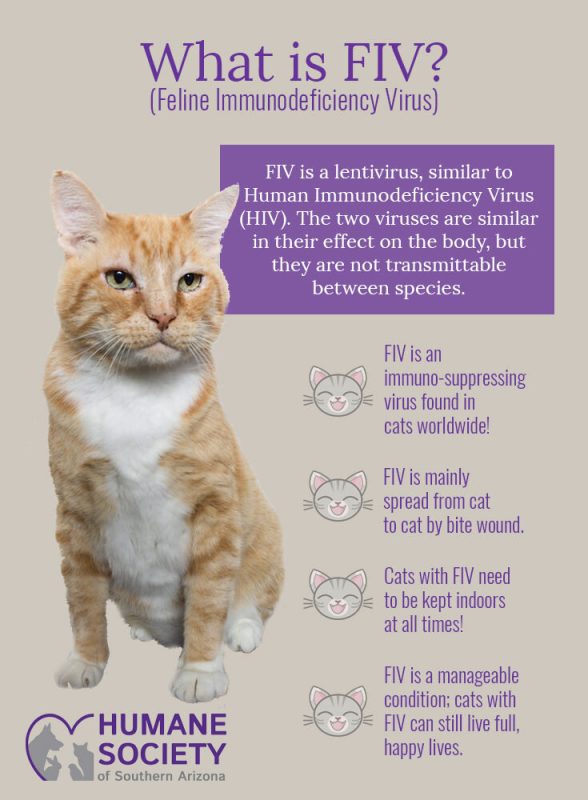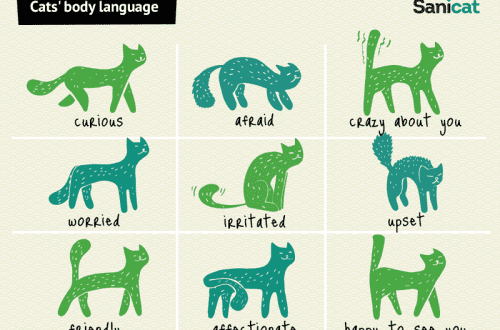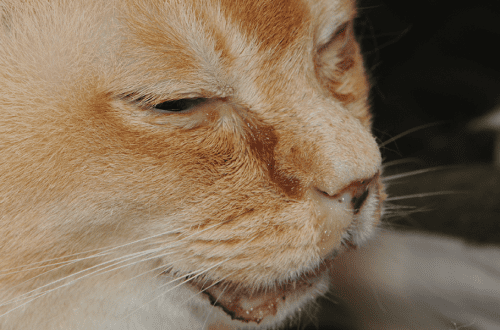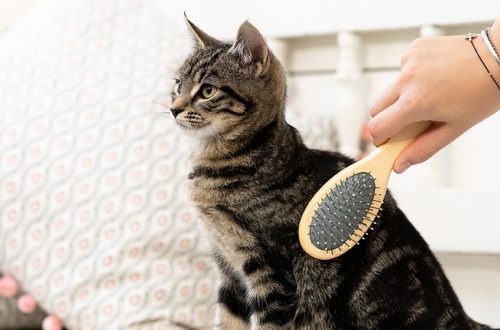
Feline immunodeficiency virus: symptoms and signs
Some furry owners have heard of FIV, which is short for the feline immunodeficiency virus that causes this infectious disease. It is very similar to HIV in humans: it attacks the cat’s immune system, weakening it over time and making it vulnerable to secondary infections. FIV infection in cats persists for life.
How long do cats with FIV live and how can they be supported?
Contents
Feline Immunodeficiency Virus: Symptoms
FIV affects cats very slowly, so it can take years for symptoms to appear. In addition, an infected pet may get sick with a gradual deterioration in the condition and only periodic manifestations of signs of the virus.
Overt symptoms of FIV in cats are associated with secondary infections. The weakened immune system of the animal becomes more susceptible to other diseases.
Signs of FIV in a cat vary widely and may include the following:
- swollen lymph nodes;
- increased body temperature;
- loss of appetite and weight loss;
- untidy appearance of wool;
- vomiting or diarrhea;
- sneezing or wet, swollen eyes;
- non-healing wounds;
- severe inflammation of the gums;
- skin redness or sores;
- unexpected changes associated with visiting the litter box, including frequent or difficult urination, urination past the litter box, and/or blood in the urine.
A sick pet can only transmit the virus to other cats. The feline immunodeficiency virus is not transmitted to humans or other animals. You can usually become infected through bite wounds. FIV can also be passed in utero through the placenta from mother to kittens.
FIV, or feline immunodeficiency virus: diagnosis
According to reports, FIV-positive cats are usually street animals that fight or have bite wounds. Usually these are wild, stray, unsterilized animals.
The rapid FIV test in cats is used for diagnosis, so it is best to test it before adopting a street pet. Also, be aware that kittens under 6 months of age who test positive may not be infected. They should be isolated from other cats and retested when maternal antibodies are gone from their body. This usually happens between 6 and 7 months of age.
No analysis is 100% accurate, so you should consult with your veterinarian to see if your pet needs further testing.
FIV prevention
Until 2017, cats were vaccinated, but for a number of objective reasons, the drug was discontinued. The easiest way to protect against infection today is to keep your pet at home away from animals that can infect him. If the cat will walk on the street, it must be kept on a leash or in an outdoor enclosure, for example, in a cat yard.
Feline Immunodeficiency Virus: Treatment
Although there is no cure for the infection, an FIV-positive cat can live a long and comfortable life. She needs to be properly looked after and regularly, every six months, be taken to the veterinary clinic for preventive appointments.
Treatment of clinical symptoms is directed primarily at controlling the general condition or treating secondary infections. This requires keeping the cat strictly at home to prevent the spread of the disease and prolong the asymptomatic period. FIV-positive animals should be spayed or castrated.
Treatment of asymptomatic FIV-positive cats includes feeding a high-quality, complete and balanced diet, careful parasite control, avoiding secondary infections, dental care, avoiding unnecessary stressors, and monitoring for symptoms.
Living with an FIV positive cat
Since the immune system of such pets is at risk, their owners should be especially vigilant. FIV-positive cats should not be fed raw food due to the risk of salmonellosis. It should be remembered that even a mild respiratory infection can lead to life-threatening pneumonia. To avoid the risk of infecting other cats, it is recommended that FIV-positive pets live in a home with no other cats, or with cats that are also infected with FIV. With proper attention and proper care, FIV-positive cats can lead healthy, happy lives and make excellent companions. for many years.





